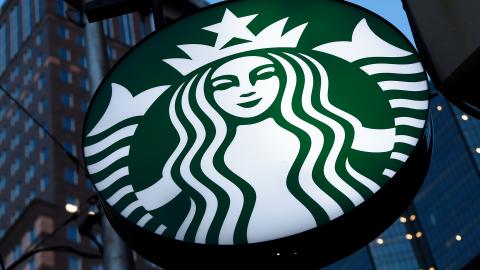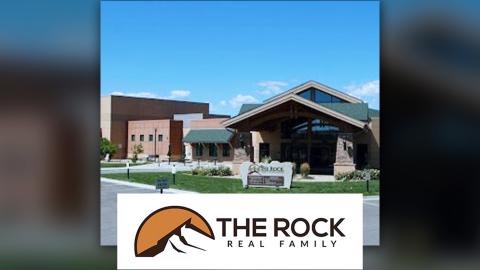
'Unsafe to Continue': Starbucks Closing 16 Stores in Democrat-run Cities Over Safety Concerns
Starbucks is permanently closing 16 stores located in five liberal U.S. cities around the country because of repeated safety issues, including drug use and other disruptive behaviors that threaten staff.
The coffee giant is closing six stores in its hometown of Seattle, six in Los Angeles, two in Portland, Oregon, one in Philadelphia, and one in Washington, D.C.'s Union Station. Starbucks said employees at those stores will be given the opportunity to transfer to other stores.
"After careful consideration, we are closing some stores in locations that have experienced a high volume of challenging incidents that make it unsafe to continue to operate, to open new locations with safer conditions," a Starbucks spokesperson told Business Insider.
Today's Quick Start Podcast: Biden in Middle East, Trust in Public School PLUMMETS
The stores will be closed by the end of July, according to The Wall Street Journal.
Nicky DeClerico, a 65-year-old Philadelphia resident, told the newspaper he cut back on his trips to Starbucks due to the COVID-19 pandemic. He explained how crime in the downtown area has made him reluctant to return to the cafes.
DeClerico said he didn't blame Starbucks employees for not wanting to work in urban stores where he said thinly staffed locations could feel scary for workers.
"If you have crime, nothing can survive," he told The Journal.
Starbucks said Tuesday the closures are part of a larger effort to respond to staff concerns and make sure stores are safe and welcoming. In a letter to employees, Starbucks' senior vice presidents of operations Debbie Stroud and Denise Nelson said the company's stores aren't immune from problems like rising drug use and a growing mental health crisis.
"We know these challenges can, at times, play out within our stores too. We read every incident report you file — it's a lot," Stroud and Nelson wrote.
In the letter to employees, Starbucks said it is willing to make adjustments to ensure store safety, including modifying operating hours and moving furniture — or removing it — in order to give employees a clearer view of the store. The company said it's also testing alarm systems and sensors to alert employees if someone is in a restroom.
Starbucks also noted an effort — now in eight cities — called Outreach Worker, which connects store employees to nonprofit groups that can help patrons who are chronically homeless, mentally ill, or abusing drugs.
The company also said restrooms at some stores might be closed if they become a safety hazard.
But the coffee purveyor also faced criticism from some workers who said they weren't consulted or given any options besides closure.
"We think it is not fair that we were not allowed to be a part of this decision about our working conditions, nor for Starbucks to claim they could not provide a safe experience for our workplace," said Mari Cosgrove, an employee at one of the Seattle stores that are closing.
The closures took on heightened significance because of an ongoing unionization effort at Starbucks' U.S. stores. More than 189 U.S. Starbucks stores have voted to unionize since late last year, according to the National Labor Relations Board. Starbucks opposes the unionization effort.
Two of the Seattle stores that are closing have voted to unionize, while one of the Portland stores has petitioned to hold a union vote. Last month, Starbucks also closed a unionized store in Ithaca, New York, because of operational problems, including an overflowing grease trap.
***Please sign up for CBN Newsletters and download the CBN News app to ensure you keep receiving the latest news from a distinctly Christian perspective.***
Starbucks Workers United, the labor group organizing the effort, said it intends to file unfair labor practice charges against Starbucks on behalf of the two unionized stores that are closing in Seattle.
U.S. labor law doesn't prevent Starbucks from closing its stores for business reasons. But it can't close a store — whether it's unionized or not — in retaliation against labor organizers.
But Starbucks insisted the closures weren't related to the unionization drive.
"Opening and closing stores is part of our business operations," a spokesperson for the company said. "This is really rooted in safe and welcoming stores."
As CBN News reported late last month, crime rates are now soaring across the U.S. – 37 cities saw an 18 percent rise in murders in the first three months of 2021, including a jump of 58 percent in Atlanta and more than 500 percent in Portland.
The rise in crime across the nation has Democrats on defense. In the summer of 2020, Democrats across the nation embraced the idea of defunding police. Now that the devastating consequences are starting to show, they're reversing course.
Several big cities are backtracking, looking to reinstate tens of millions of dollars they had cut or withheld from the police force.
But Rep. Jim Banks (R-Indiana) said it will take more than restoring funds to rebuild the ranks of our nation's police forces.
"When Rep. (Ilhan) Omar says policing is rooted in evil and Nancy Pelosi compares police officers to Nazi stormtroopers, it makes it very hard for police departments around the country to recruit police officers," Banks said. "It's making it harder to recruit people to become police officers."
Also, one of America's most liberal cities sent a huge message when it booted District Attorney Chesa Boudin in a recall campaign last month.
Boudin, the son of convicted Weather Underground terrorists Kathy Boudin and David Gilbert, was elected in 2019 on a clear mandate to reform the criminal justice system – finding alternatives to incarceration, ending cash bail, and holding the police accountable. What San Francisco residents got in return was a city overrun with crime. Tourists were even warned to avoid the city for their own safety.
Under Boudin, burglaries were up 40 percent, and homicides 37 percent. One poll showed that 40 percent of city residents plan to leave.




